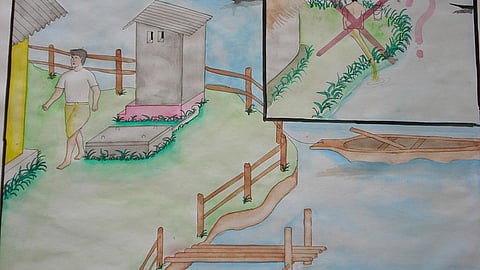
- Topics
- Feature
- Opportunities & Events
- Data
- Hindi Portal
- Topics
- Feature
- Opportunities & Events
- Data
- Hindi Portal

The blueprint of team Modi's rural employment guarantee scheme, the Mahatma Gandhi National Rural Employment Guarantee Act (MGNREGA), has given top priority to sanitation projects and increasing green cover. The plan has proposed allocating 50% of the funds to rural sanitation projects in order to eradicate open defecation, as well as planting trees along highways and roads.
Environment Minister Prakash Javadekar, has said that the Government is reviewing several hydropower projects in the country following concerns shown by some states. The review is to ensure that these projects generate maximum green energy without affecting the ecology. However, the Minister defended the existing hydel projects as he quoted the Tehri hydropower project as an example of reducing the impact of the Uttarakhand disaster in June 2013.
United Nation's International Seabed Authority (ISA) has awarded seven licenses to India, UK, Germany, Brazil, Singapore and Russia for mining the ocean floor for copper, gold and manganese. The ISA has issued licences for exploration only and is yet to give permission for exploitation. The license that India received covers deep ocean ridges where hydrothermal vents have created potentially rich deposits.
The Environment MInistry has given its approval for the three projects (HEO, Tato and Pauk hydel projects) proposed on the Yarjep, a tributary of the Siang river. The cumulative impact assessment of these projects is yet to be finalised. South Asia Network for Dams Rivers and People (SANDRP) is oppossing the projects and claims that the projects will adversely affect the regions biodiversity. In Uttarakhand also, the Ministry has given clearance to the under-construction 300 MW Lakhwara hydro power project across the river Kali.
As per the CAG report (2012-13), nearly 35% of drinking water in Goa was unaccounted for, which has lead to a revenue loss of Rs. 77 crore to the state. The major factors behind unbilled water are leakage of water from transmission lines, distribution lines, underground reservoirs, valves, illegal connections, unmetered supply and dysfunctional or faulty metres. Government's guidelines have specified that the unaccounted water should not exceed 15 per cent of the total supply.
This is a weekly roundup of policy matters from July 21-28, 2014. Also read last week's news roundup.